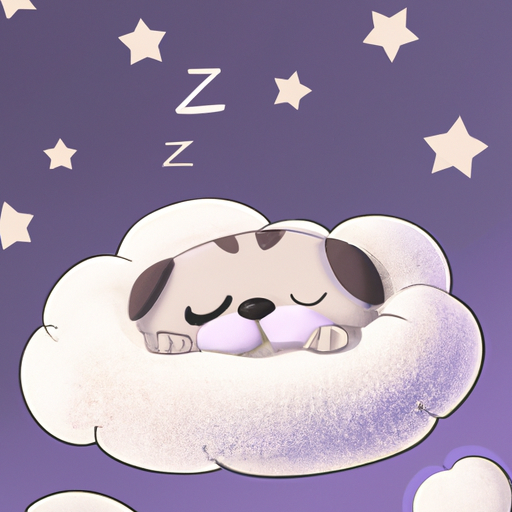Introduction
As a devoted caregiver to your new puppy, you might notice that your tiny furball spends most of the day snoozing. You might be asking yourself, “How much sleep do puppies need?” or “Is my puppy sleeping too much?” Don’t fret! This guide aims to answer all your questions about puppy sleeping habits and provide useful tips to ensure your pup gets the best quality sleep.
Understanding Puppy Sleep Patterns
Unlike adult dogs, puppies have different sleep needs. While an adult dog spends about 12 to 14 hours sleeping, puppies can sleep for up to 20 hours a day! This is because, like human babies, puppies expend a lot of energy exploring their new world and learning new things. Sleep is crucial for their growth, development, and energy restoration.
Factors Influencing Puppy Sleep
Different factors can influence how much sleep a puppy gets:
-
Age: Newborn puppies sleep virtually all the time. As they grow older, their wakeful periods extend, but they still require more sleep than adult dogs.
-
Breed: Larger breeds tend to sleep more than smaller ones as they grow at a faster rate and thus need more rest.
-
Activity Level: Active puppies will tire out faster and need more sleep.
-
Health: Puppies that are unwell may sleep more as their bodies fight off illness.
Creating a Sleep-Friendly Environment
Ensuring your puppy has a comfortable sleeping area is key to quality sleep. Here are a few tips:
-
Provide a comfortable bed. It doesn’t have to be fancy, but it should be soft, warm, and big enough for your puppy to stretch out.
-
Maintain a quiet environment. Puppies, like us, are easily disturbed by noises. Keep the sleeping area quiet to ensure your puppy can sleep undisturbed.
-
Keep the sleeping area clean. Regularly clean your puppy’s bedding to make it a pleasant place to sleep.
Importance of a Sleep Routine
Just as with children, establishing a sleep routine can help regulate your puppy’s internal clock. This could include a set bedtime, a pre-bedtime ritual such as a walk or playtime, and a morning wake-up time. Consistency is key when establishing a routine.
Sleep Problems In Puppies
Like humans, puppies can have sleep problems too. Here are a few common ones:
-
Insomnia: Yes, dogs can have insomnia too. Stress, pain, or illness could cause this. If you notice your puppy has trouble sleeping, contact your vet.
-
Sleep Apnea: This is more common in breeds with short noses, like bulldogs. If your puppy seems to stop breathing in their sleep, or wakes up choking or gasping for air, they might have sleep apnea. This requires immediate veterinary attention.
-
Narcolepsy: This is a condition where the puppy falls asleep suddenly and without warning. It’s not harmful, but if you notice this behavior, it’s important to consult with a vet.
Training your Puppy to Sleep Through the Night
It can be challenging to get a puppy to sleep through the night. Here are some tips:
-
Make sure your puppy gets plenty of exercise during the day. This will help tire them out and make them more likely to sleep through the night.
-
Feed your puppy their last meal a few hours before bedtime. This gives them time to digest their food and do their “business” before bed.
-
Create a calm atmosphere before bed. This could include turning down lights and reducing noise.
-
Make sure their sleeping area is comfortable and secure.
FAQ
Q: Can a puppy sleep too much?
A: While puppies do need a lot of sleep, excessive sleep can indicate health issues. If you’re concerned, it’s best to consult with your vet.
Q: How can I help my puppy sleep at night?
A: Establishing a routine and ensuring your puppy gets plenty of exercise during the day can help. Also, make sure their sleeping environment is comfortable and quiet.
Q: When will my puppy start sleeping through the night?
A: This varies for each puppy, but most puppies start sleeping through the night around four months of age.
Q: Should I wake my puppy up to go pee at night?
A: Until your puppy is about four months old, they may not be able to hold their bladder through the night. It might be necessary to take them out for a bathroom break.
Taking care of a puppy is a big responsibility, but with patience and understanding, you can ensure your puppy gets the sleep they need for healthy growth and development.



